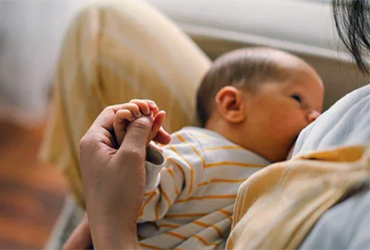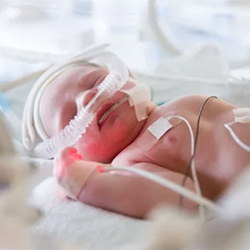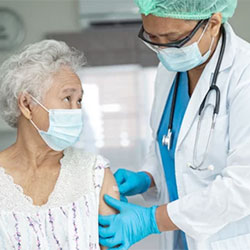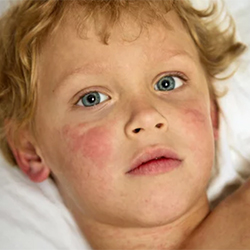By IDSE News Staff
Researchers from the University of Florida found more evidence to support breast milk from mothers who are vaccinated against COVID-19 provides protection to infants still too young to be vaccinated, according to a new study.
The study built on previous findings from a 2021 study in which the researchers found breast milk of vaccinated mothers contained significant levels of antibodies that may help protect infants from COVID-19 illness (Breastfeed Med 2021;16[12]:1004-1009).

“Our first study showed there were SARS-CoV-2 antibodies in the breast milk, but we couldn’t say if those antibodies were getting through the babies’ gastrointestinal tract and possibly providing protection there,” said lead researcher Joseph Larkin III, PhD, an associate professor in the Department of Microbiology and Cell Science at the University of Florida Institute of Food and Agricultural Sciences (UF/IFAS), in Gainesville.
Between December 2020 and November 2021, the researchers enrolled 37 mothers and 25 infants into a prospective observational study aimed to assess presence, durability and neutralization capacity of SARS-CoV-2–specific antibodies in stool from nursing infants, mothers’ plasma and their breast milk after the mothers received a COVID-19 vaccination (J Perinatol 2023 Jan 12. doi:10.1038/s41372-022-01581-5).
All mothers received their vaccination during breastfeeding, except three, who received their shots during pregnancy.
The researchers collected samples of breast milk, mothers’ plasma and infants’ stool prior to vaccination and then again up to six months after completion or initiation of the COVID-19 vaccine series.
The samples were centrifuged for various times and temperatures based on sample type. An assessment was conducted to determine the levels of SARS-CoV-2 antibodies and their neutralization capabilities.
The researchers found SARS-CoV-2–specific immunoglobulin A (IgA) and IgG levels were higher in infants who had vaccinated mothers compared with controls.
“We saw that when the antibodies were present, there were fewer fluorescent cells compared to our controls where no antibodies were present,” said researcher Lauren Stafford, a doctoral student at UF/IFAS College of Agricultural and Life Sciences.
Additionally, a possible waning of protection was observed over the six-month follow-up period, but the researchers noted the SARS-CoV-2–specific IgA and IgG levels remained higher than prevaccination levels.
Combined with the results of the previous study, researcher Josef Neu, MD, a professor in the Department of Pediatrics in the Division of Neonatology at the UF College of Medicine, said these results provide a clearer picture about how receiving a COVID-19 vaccination during pregnancy or while breastfeeding may offer additional protection for the child.
“In our research, we’re following the journey of the antibodies, from the time they are produced in mom after vaccination and now through the baby’s digestive system,” Dr. Neu said. “The next question is whether those babies are less likely to get COVID-19.”
The researchers said larger studies are needed to answer that question.




